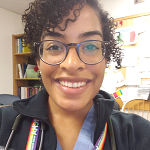Dear Brother & Sister X,
The feeling of grief, fear and frustration felt by our fellow Black and Brown siblings in America after the death of George Floyd, Ahmaud Arbery and Breona Taylor is impossible to dismiss, especially when it has been met with the president’s public combativeness towards protesters and promotion of state violence. History has shown us time and time again that the outcome of putting all of our hopes into large scale structural change leaves communities of color waiting for government institutions to act on our behalf; and while we wait, we continue to live in a perpetual state of fear and frustration. When the government has only empty promises to offer us for the time being, we have to come together to figure out ways to help ourselves despite the silence. As we are protesting for change while those in power sit idle, let’s think of ways to ensure our safety now as well as protect our loved one’s safety the next time we encounter the police during a routine police stop. This letter is not about putting pressure on government institutions to make changes to reduce police brutality. Instead, it is geared towards empowering our Black and Brown brothers and sisters to revisit “the talk,” discuss amongst each other ways to get home safely, and if we’re ever put under arrest, what to do after.
I’d like to begin with discussing “the talk.” Coming from a Grenadian-Haitian immigrant household starting out in Flatbush, Brooklyn, my brothers and I were given “the talk” as children and young adults to prepare us for the possibility of being racially profiled while walking down the street, or the risk of falling victim to excessive use of force by police. That talk was helpful but didn’t prepare me for the actual interaction with police; it instilled more fear, anxiety and frustration without necessarily teaching tangible ways to navigate the stressful interactions. I would like to share some helpful tips for interacting with the police that I have learned from my personal experience dealing with police officers during routine stops through the years, as a Black woman and now, a physician. I want to preface this with a disclaimer that the outcome of a routine stop is dependent, in part, on what each individual brings to the interaction. That means we only have control over what we do but have zero control over how a police officer reacts. Plainly, the interaction may still turn south no matter what we do, and this is the unfortunate reality that we live with during every encounter.
The fear that is aroused when a police officer pulls you over is real, especially when you don't know what or if anything has warranted the stop. The flashing lights, the ten seconds when he comes around to the driver's side of the window and shines the flashlight in. Throat closes up. Breathless. I can’t breathe.
To start with, park the car and turn off the engine. Roll the window down on the driver’s side. You want to assure the police officer that you are not going to take off. Take your sunglasses off if you’re wearing them, turn down the music if it’s blasting. You want to make sure he can see your face and can hear you. It’s also showing a degree of respect for the other individual which might make him feel more comfortable. Part of this interaction is being the safest version of ourselves to avoid setting off his or her alarms or causing him to escalate the situation (even when it feels like we are catering more to someone else's needs in a situation where we often have very little power). Do what is in your control to assure him that the situation is safe. Wait for him to come over to the driver’s side. Always keep your registration in the same location so you don’t have to think about where it is. If you don’t know where your credentials are, wait until he comes over so you can tell him where you are going to reach to look for it (e.g. the glove compartment). Avoid sudden movements. You want to assure him that the situation is safe, which means talking him through what you are about to do, even when you are terrified, confused about the stop or have just been spoken to disrespectfully or sweared at. Avoid questioning. You can be pulled over for any reason (e.g. broken taillight, expired registration, expired or failed inspection stickers). If you have to be taken away in handcuffs, don’t resist—no matter what. Keep in mind that the goal is to survive the interaction, even if that means being handcuffed and put into the cop car. If the reason seems unjust or flat out wrong, there are ways to report this after the stop. I can’t stress enough that this will not work for all of us depending on the individual and the type of police officer.
The last important piece is to know your rights. According to the American Civil Liberties Union (ACLU), if you are arrested or detained by the police, you have the right to remain silent, and if you have a lawyer, you can call them. You can also make a local phone call. If you feel that your rights were violated, write down everything you are able to remember, such as the name on the officer’s badge, the patrol car number and the specific agency. If you got injured, take pictures and go to the hospital. You can file a written complaint (it can be anonymous) with either the internal affairs office or civilian complaint board. Visit the ACLU’s website for more details.
Although much easier said than done, the main takeaway is that the best way to deal with the stress of these situations is to remain calm, despite the terror, fear and anger that a police stop causes. This is the thorn in the side of the Black and Brown experience in the United States. I want to empower my fellow Black and Brown brothers and sisters to strive to protect ourselves mentally, emotionally and physically during this time and not put all our eggs into one basket (i.e. continue to wait on government institutions to find ways to bring about racial justice). While so many aspects of our lives are uncertain right now, these are a few things we can do to make sure that you and I, our loved ones and our community, get home safe.
Much respect,
Gisele
Interested in other articles like this? Subscribe to the Center's newsletter.
--

Gisele Cesar, MD, is a proud Grenadian-Haitian American Family Medicine Resident Physician at Tufts University & Cambridge Health Alliance, where she primarily works in Malden and Everett, Massachusetts. She strives to empower patients in her community to take control of their health and well-being. Gisele enjoys spending quality time with her partner, Brian, who is a social worker in Malden and Everett.
- Share
-
Permalink


